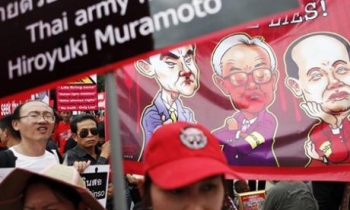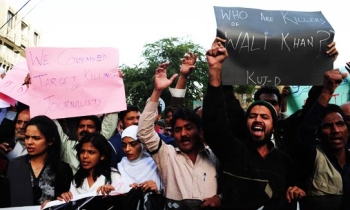Less than a year ago, Julia Hobsbawm's fledgling business Editorial Intelligence (EI) was attacked in the press for the audacity of its concept, which was to create a "bridge" between the two sparring worlds of public relations and journalism.
Some journalists thought it compromised them to have a formal relationship with commercially driven people from the land of the dark arts. So they took an axe to Hobsbawm's metaphorical bridge. Various high-profile members of EI's advisory board took flight and the venture's future was uncertain.
Hobsbawm, who made her name as one of Britain's best-known PR officers, says her error was in failing to distance herself from her past. "I think I made a really big mistake, which was not to make it clear that I was moving out of PR. The perception that Editorial Intelligence was a PR agency was a legitimate misconception."
Hobsbawm says she has "fallen out of love with PR", after a 20-year career where she built up an agency with Gordon Brown's wife, Sarah, and is rumoured to have advised friends such as Kimberly Quinn Fortier over her affair with David Blunkett. Sarah Brown is the only topic she won't touch today (their agency HMC, which Hobsbawm says was successful and profitable, was declared bankrupt following an inherited property debt). She is adamant that neither she, nor her new baby EI, is involved in the PR business.
She thinks of Editorial Intelligence as a "matchmaking vehicle". "I always said that I don't think there's any problem whatsoever about putting journalism and PR in the same moral sphere. Journalists should be fiercely independent; I don't think that's incompatible at all with what we're doing. We're not selling ideas directly into the commentariat."
In spite of the brickbats of a year ago, Hobsbawm, the daughter of the Marxist academic Eric Hobsbawm, held her nerve. She's replaced the notion of a "bridge" with a clutch of new metaphors and analogies. EI is now, she says, the "portal to the commentariat" - "commentariat" being Hobsbawm's own term for the opinion formers who stimulate debate and discord in the UK's press, both in print and online.
She says she finds the idea of a satellite navigation system the most useful of a number of geographical analogies that can help to explain what EI does - it is "lasering in" on the complex, shifting map of commentators, and providing the "definitive guide to that world". Another comparison is with Google Maps, a sort of three-dimensional online A-Z. "Before Google Maps," Hobsbawm explains, "if you were renting a holiday home you weren't able to know precisely if that holiday home was next to an A road. I feel it's a bit the same as Editorial Intelligence."
In case you are still confused, EI sells information about 800 key commentators, and facilitates networking between these commentators and its members. The key to its future is its website; stumping up a £4,000 membership fee gives organisations and wealthy individuals access to detailed profiles of commentators and leader writers by listing the publications they write for, their interests, career histories, e-mail addresses, the names of their commissioning editors and the days on which they write. All this information is in the public domain, but EI has distilled it into handy online cribsheets. Some parts of the site can be accessed by non-members.
EI also hosts a series of chaired events, where members can reach out and touch the writers whose profiles they have read on the website. Later this month, The Times's comment editor Daniel Finkelstein, the Sky News political editor Adam Boulton, a top Google executive and others will discuss how the internet will change politics. Another event will examine the Scottishness of Gordon Brown's politics, while Unilever is sponsoring a discussion on the politics of children's food.
The list of clients signed up for EI's service certainly wields some power: Morgan Stanley, HSBC, Clifford Chance, Tesco, Unilever, the Metropolitan Police, Transport for London, Reuters, Ofcom and the Arts Council are all members, as are the PR agencies Weber Shandwick and Fishburn Hedges.
Editorial Intelligence's next tasks are to pin down and profile the blogging commentariat, and to pilot EITV, where Hobsbawm will interview writers such as Noreena Hertz and Janine di Giovanni.
Not all journalists, though, can stomach the idea of PR and journalism existing in the "same moral sphere". The former Today programme editor Rod Liddle has said that the two should never, ever climb into bed together. Liddle can, of course, opt out of attending Hobsbawm's networking events, but he will still be scrutinised on her site.
Liddle is bemused that EI lists him as an agriculture and farming expert, and doesn't understand the point of the profiles, calling them "a cut-and-paste exercise that anyone can do anywhere. If someone wants to get hold of me, they ring up The Sunday Times. I'm not some aloof personage who needs to be drawn into the fray. I'm not someone who needs to be lobbied. Why do you need a middleman?"
Hobsbawm would no doubt be pleased to hear that he uses the word "commentariat" freely. She would also argue that you need a middleman such as EI to cut through the sheer quantity of column inches the commentariat produce. "If you can hack your way through the jungle unaided, be my guest. Whether it's booking guests for a documentary, researching a book or pitching a piece, if you could do the best job without this resource, I would be surprised."









